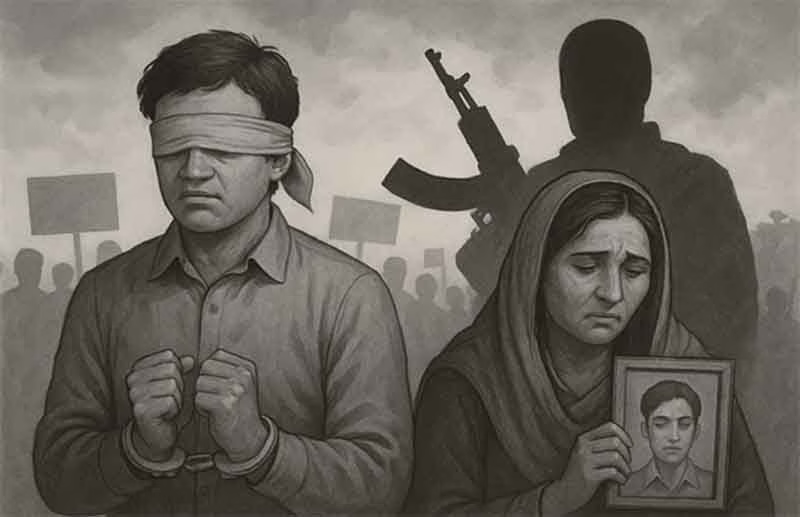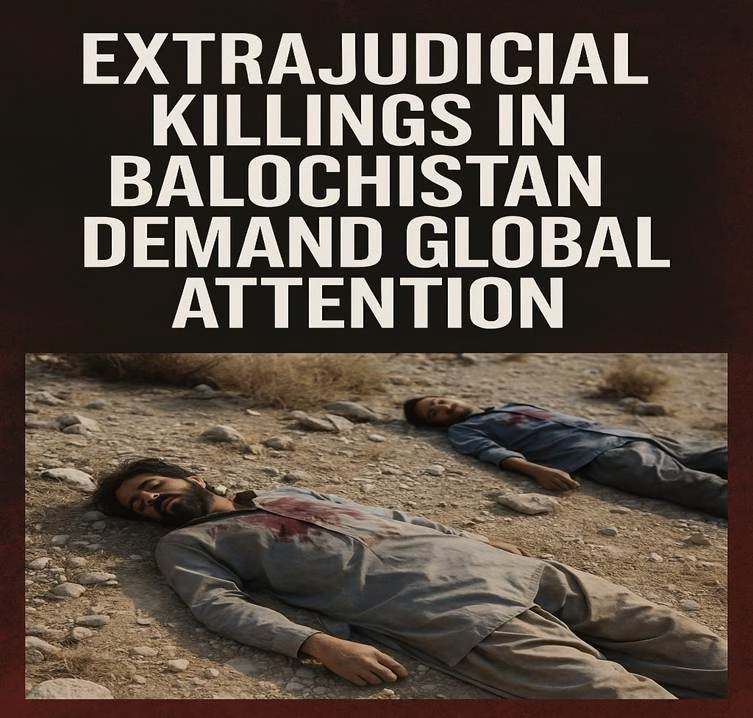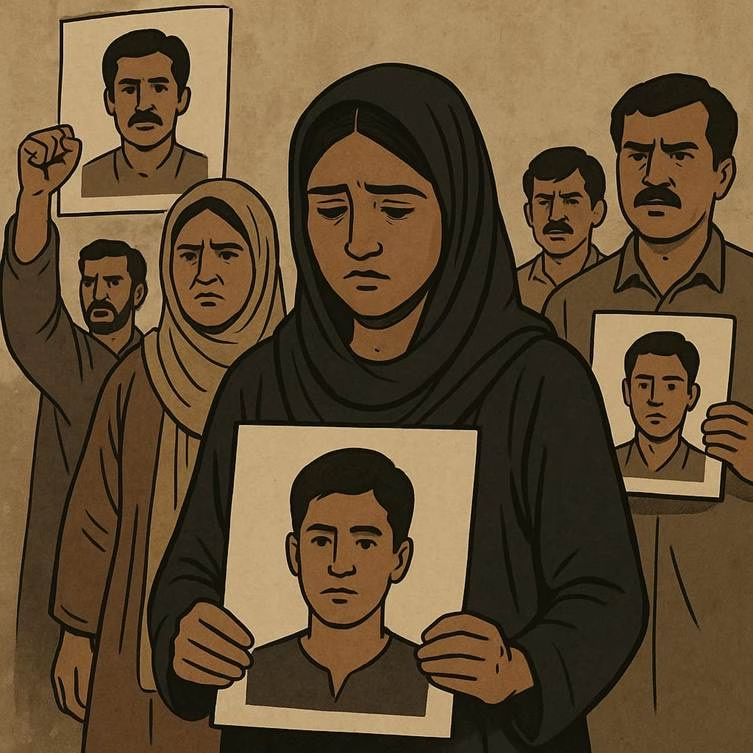
Among the most brutal and underreported human rights crises within Pakistan is the phenomenon of enforced disappearances and targeted killings in Balochistan and Khyber Pakhtunkhwa (KPK). This is not merely a constitutional failure—it is a calculated, repressive strategy that Pakistan’s military and intelligence establishment has employed for decades. In these regions, enforced disappearances and assassinations have become a routine instrument to crush civil liberties, stifle dissent, and silence political opposition.
The Vanishing Citizens of Balochistan
Balochistan, Pakistan’s largest and mineral-rich province, has been a locus of discontent ever since its forced annexation in 1948. Under the pretext of neutralizing separatist movements, the Pakistani state has abducted thousands of citizens. According to groups like the Voice for Baloch Missing Persons, more than 6,000 young Baloch men—students, political activists, teachers, and human rights defenders—have disappeared in the past decade alone. Many are held incommunicado for months or years; some reappear as mutilated corpses dumped in remote ravines and desolate roadsides.
A widely cited case is that of Rashid Hussain, a Baloch human rights activist who was abducted by Emirati authorities in the UAE in 2018, allegedly at Pakistan’s request. Despite a UN working group’s concerns and the absence of formal extradition procedures, he was handed over to Pakistani intelligence. His family has had no confirmed information about his whereabouts since. Human rights groups fear he has been subjected to torture or extrajudicial killing.
Targeted Killings and the ‘Kill and Dump’ Doctrine
The notorious ‘kill and dump’ policy has long been alleged as a standard operating procedure in Balochistan. Bodies discovered riddled with bullets and bearing signs of torture are frequently identified as those previously reported missing. Baloch political organizations argue that this pattern of violence is a state-sanctioned effort to erase the struggle for Baloch identity and autonomy. Accountability is virtually nonexistent, underscoring the erosion of the rule of law in Pakistan.
The Same Story in Khyber Pakhtunkhwa
KPK is no exception. Particularly since the rise of the Pashtun Tahafuz Movement (PTM), which openly challenges military abuses, the region has witnessed a spike in disappearances and killings. Prominent human rights advocates like Arman Loni and PTM leaders such as Ali Wazir and Mohsin Dawar have persistently highlighted the state’s violent response to criticism. Journalists and activists are frequently harassed, abducted, or entangled in fabricated legal charges. The silencing of dissent has become systematic.
The Institutional Machinery Behind State Violence
At the heart of this repression lies a powerful military-intelligence nexus. Agencies like the Inter-Services Intelligence (ISI) and Military Intelligence not only monitor but also execute operations with impunity. The entire apparatus functions above scrutiny—parliament, media, and judiciary remain either complicit, intimidated, or paralyzed. Anyone who dares question this order is swiftly branded a traitor and neutralized.
International Response and Global Silence
Human rights groups such as Amnesty International and Human Rights Watch have repeatedly censured Pakistan. Yet, the international community—including the United Nations—has largely remained muted. The China-Pakistan Economic Corridor (CPEC), which runs through Balochistan, has further incentivized this silence. Major powers often sidestep the issue in deference to geopolitical alignments, leaving affected communities feeling utterly abandoned on the world stage.
Conclusion
Enforced disappearances and targeted killings in Balochistan and KPK are not merely human rights violations—they are a mirror reflecting the collapse of Pakistan’s federal compact and its so-called democratic order. To dismiss this violence as an “internal matter” is not just morally bankrupt; it sows instability across the wider South Asian region. Until the constitutional and human rights of Baloch and Pashtun communities are respected, peace in Pakistan will remain a myth—and resistance will persist.
Subscribe to Our Newsletter
Get the latest CounterCurrents updates delivered straight to your inbox.
Ashish Singh has finished his Ph.D. coursework in political science from the NRU-HSE, Moscow, Russia. He has previously studied at Oslo Metropolitan University, Norway; and TISS, Mumbai.














































